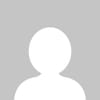Every hotel has its size, requirements, and budget. The revenue generated per room holds the potential to grow and increase profits for any hotel business. To create a profitable operation and make a statement in the hospitality industry, hotels need to implement efficient revenue management.
What you’ll gain: A clear, actionable understanding of Revenue Management Software (RMS), its benefits, and how it directly impacts your hotel’s profitability. We’ll also explore how Hotelogix’s RMS capabilities can seamlessly integrate into your operations to ensure more accurate forecasting, dynamic pricing, and streamlined workflows.
1. What is Revenue Management Software?
Revenue Management Software (RMS) is a technological solution designed to handle dynamic revenue data. This intelligent software solves complex challenges like prices, inventory management, vendors, and timing. It uses historical data to create predictions and provide recommendations aimed at profitability.
Before the advent of RMS, revenue management was handled by analytical teams, often prone to human error, financial gaps, and outdated data practices. Today, RMS streamlines operations, optimizes revenue, and removes the uncertainty from revenue decisions by making data-driven recommendations based on real-time information.
2. Why Do Hotels Need RMS?
Hotels, with their many moving parts, benefit greatly from RMS due to the complexity of managing revenue. An RMS can analyze and optimize multiple factors that directly impact hotel revenue, such as:
- Competitor Rates: Many RMS platforms allow you to check and compare competitor prices to ensure you're aligned with market trends.
- Inventory Levels: RMS helps track inventory, from rooms to furniture and beyond, optimizing costs on a daily basis.
- Marketing Dynamics: It tracks market demand, helping hotels adjust their pricing to customer needs and ensure better customer relations.
- Historical Rates: By evaluating past data, RMS makes informed predictions about the hotel’s financial future, helping to shape pricing strategies.
3. Key Benefits of RMS
Revenue management is a continuous process for hotels. RMS helps hotel businesses forecast demand, manage inventory, and adjust pricing to maximize profits. Here are a few key benefits:
3.1 Better Guest Experience
By integrating RMS with guest services apps, you can track guest preferences and personalize their stay. Accurate inventory and pricing also ensure guests receive the best options based on availability, improving their overall experience and increasing the chance of return visits.
3.2 Enhanced Employee Satisfaction
RMS reduces the manual work required for forecasting and pricing, which streamlines workflows for your team. Less time spent on calculations means employees can focus on other important tasks, leading to higher job satisfaction and less stress.
3.3 A Stronger Grasp on Market Demand
Sifting through vast amounts of data to predict demand can be overwhelming. RMS quickly categorizes, analyzes, and visualizes the data, making it easier to make accurate pricing forecasts. This ensures that dynamic pricing strategies match real-time demand, providing you with the best revenue optimization.
4. How Does RMS Benefit Hotels?
Hotels can increase revenue through various channels thanks to the power of RMS. It empowers hotels to:
- Make accurate pricing decisions based on real-time data, including competitor prices and demand forecasts.
- Manage inventory efficiently, ensuring that rooms are priced optimally at the right times for the right guests.
- Leverage historical data to anticipate peak seasons and slow periods, adjusting pricing accordingly.
- Implement dynamic pricing, which adjusts daily rates according to changes in demand, occupancy, and competitor pricing.
RMS also integrates with your GDS connect and multi-property & CRS to ensure consistent pricing across all distribution channels, further maximizing your revenue potential.
5. How Hotelogix Can Help with RMS
With real-time OTA management and multi-property integration, you can track and manage revenue across various properties from a single dashboard. This saves you time and ensures that your pricing strategies are aligned and profitable across all your hotel properties.
Hotelogix RMS — Key Features:
- Real-time pricing adjustments: Update rates instantly across all sales channels.
- Historical data analysis: Use past trends to forecast future revenue.
- Competitor comparison: View market pricing trends to keep your rates competitive.
- Integrated system: Syncs seamlessly with your GDS, booking engine, and CRS for accurate, consistent pricing.
6. Final Thoughts
Revenue Management Software is a game-changer for the hospitality industry. With accurate pricing, inventory management, and real-time data at your fingertips, RMS ensures hotels can meet demand while maximizing profits. Hotelogix’s RMS integrates these capabilities into one seamless platform, making it easier for hoteliers to stay competitive, improve guest experience, and increase revenue.
To scale your hotel business efficiently, leveraging the best hotel management software like Hotelogix will streamline operations, forecast demand, and enhance profitability.
FAQ
Q1-What is Revenue Management Software (RMS)?
A-Revenue Management Software is a tool that helps hotels set dynamic pricing, manage inventory, and forecast revenue based on real-time data, improving profitability.
Q2-How does RMS benefit hotels?
A-RMS benefits hotels by providing data-driven pricing decisions, reducing manual work, and offering real-time insights into market demand, leading to optimized revenue.
Q3-How does Hotelogix’s RMS help hoteliers?
A-Hotelogix’s RMS streamlines pricing across channels, integrates with GDS connect and web booking engine, and provides real-time OTA management, all in one platform for optimal revenue growth.




